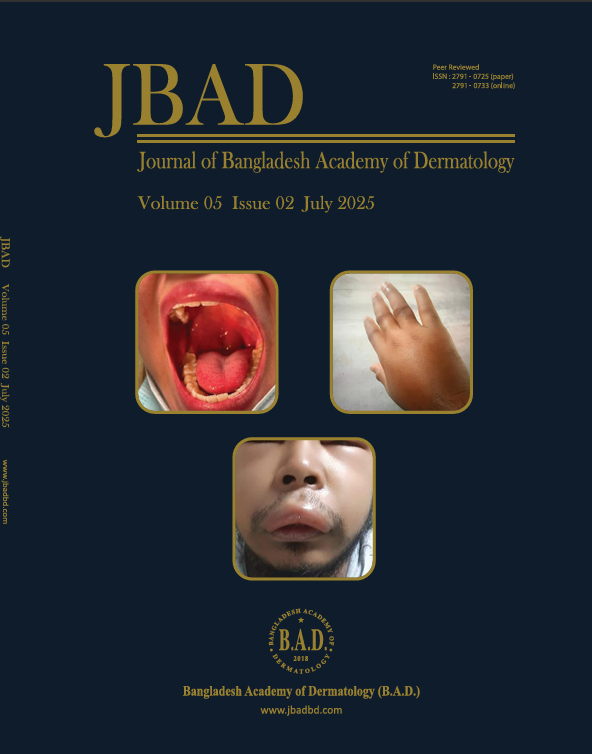Relationship of Serum High Sensitivity C - reactive Protein Level with Severity of the Disease in Patients with Psoriasis According to Psoriasis Area and Severity Index
Abstract Background: Psoriasis is an inflammatory disease of the skin of multifactorial aetiology. Psoriasis has been considered mainly to be a Th1-driven autoimmune disease defined by a cytokine pattern consisting of IFN-ß, tumour necrosis factor-alpha (TNF-a), IL-1, IL-2, IL-3, IL-6, IL-8, epidermal growth factor and transforming growth factor-alpha (TGF-α). However recent findings have revealed a potential role for IL-23 and Th17 responses in the pathogenesis of psoriasis. C-reactive protein(CRP) is important for psoriasis due to its relation with cytokines that are responsible for skin inflammation. Objectives: This study measured the serum hsCRP level in patients with psoriasis and assessed its relationship with the severity of the disease. Materials and Method: This cross-sectional study included 52 psoriatic patients, diagnosed in the Department of Dermatology & Venereology, Bangabandhu Sheikh Mujib Medical University (BSMMU), Dhaka, Bangladesh The study was conducted in two years period, from July 2018 to June 2020 and purposive type of sampling technique was applied to collect the sample from the study population.. Disease severity was measured by the Psoriasis Area Severity Index (PASI). Results: The mean serum hsCRP level was 6.29±6.8 and the mean Psoriasis Area and Severity Index (PASI) was 10.07±5.88. The mean hsCRP in mild psoriasis (PASI≤10) was 1.82±1.32 and in moderate to severe psoriasis (PASI>10) was 11.51±6.93. There was a significant positive correlation between serum hsCRP level and PASI (r=0.795, p<0.001). Conclusion: The present study revealed a positive correlation between the disease activity of psoriasis and with patient's serum hsCRP concentration. So, serum hsCRP can be considered a marker of disease activity. Keywords: C reactive protein, Psoriasis, BSMMU, PASI |

